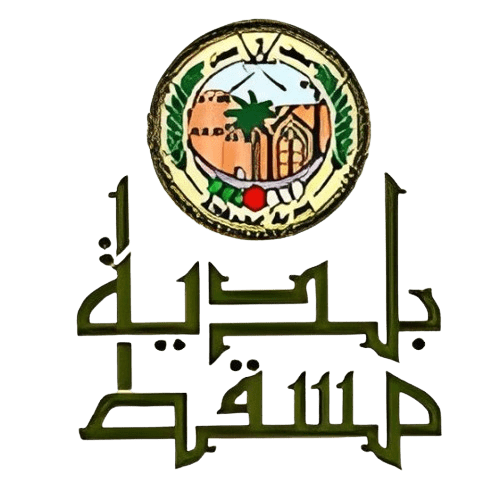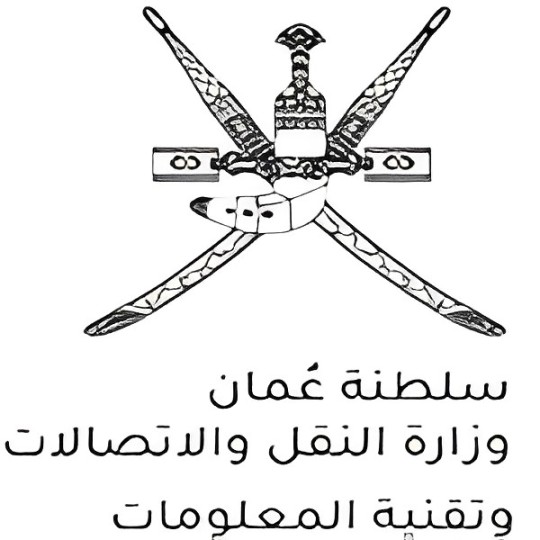+968 9596 3381
Phone Number
[email protected]
Email Address
Mon - Thu: 8:00 - 5:00
Online store always open
Phone Number
Email Address
Online store always open
WhatsApp Us Today
Drop Us an Email Today
Google Map Location
Saturday to Thursday

For Omani businesses—especially publicly listed firms, financial institutions, or those planning to attract foreign investment—adhering to International Financial Reporting Standards (IFRS) is essential for credibility, transparency, and compliance. But navigating the full transition, ongoing reporting, and audit readiness under IFRS can be complex.
This guide walks you through Oman’s IFRS requirements, who needs them, key advisory services available locally, and how to choose the right partner for smooth, compliant reporting in 2025 and beyond.
IFRS is a globally recognized framework for financial reporting, promoting transparency and comparability across jurisdictions. In Oman:
IFRS is mandatory for all domestic public companies, as defined by the Capital Market Authority (CMA).
The Financial Services Authority (FSA) issued a regulation in February 2025 mandating IFRS for reporting entities, with provisions for SMEs to use the simplified IFRS for SMEs model.
Even private companies increasingly adopt IFRS voluntarily to enhance financial credibility and attract investment or partnerships.
Required by the CMA for their public disclosures.
Banks, insurers, and similar entities must align with IFRS 9, IFRS 15, IFRS 16, and others under local banking regulations.
IFRS compliance builds trust, especially in cross-border M&A deals or capital raises.
While optional, adopting simplified IFRS aligns them with professional standards and investor expectations.
Implementation often centers on:
IFRS 9: Financial Instruments (expected credit loss models, hedge accounting)
IFRS 15: Revenue from Contracts with Customers (recognition principles)
IFRS 16: Leases (on‑balance-sheet treatment of operating leases)
IFRS 17: Insurance Contracts (if applicable)
IFRS 3/10/8: Business combinations, consolidation, and segment reporting.
Offers full-cycle IFRS implementation support—assessment, policy manuals, reporting, as well as sector-specific standards like IFRS 9 and 15. They also provide training and community support.
Specializes in IFRS impact assessment, ongoing compliance reviews, and tailored training programs for both SMEs and larger entities.
Provides gap analysis, technical advisory, policy drafting, and training, with an emphasis on making IFRS concepts accessible and actionable .
Leverages global audit and consulting capabilities to support IFRS transition across industries, blending technical accounting expertise with localized support.
Other big‑4 players like KPMG also offer technical advisory—particularly for standard transitions, ESG tagging, and audit readiness .
A robust advisory partner should help with:
IFRS Impact Assessment – Gap analysis between current accounting practices and IFRS requirements.
Transition Roadmap – Developing policies, training staff, system changes.
IFRS Financial Statement Preparation – Dual reporting, reconciliations, restatements.
Audit Support & Disclosure Review – Align reporting with statutory and regulatory requirements.
Ongoing Training & Certification – For finance staff across all levels.
Local authorities, including the CMA and FSA, often require documented justification for choosing between full IFRS and the simplified SME model.
Ensure the firm understands CMA, FSA, and OTA requirements for Oman-based entities.
Coverage of key standards (IFRS 9, 15, 16, etc.) with real-world industry implementation experience.
Must support finance teams through the transition—not just offer desktop reviews.
Look for firms that also assist with audit readiness and statutory submission under IFRS frameworks.
Check feedback from similar clients or sectors (e.g. financial institutions, listed companies).
Phase 1: Initial Impact Assessment
Evaluate mismatches with current reporting, opening balances, and system limitations.
Phase 2: Policy Development & Training
Draft IFRS-aligned accounting policies & conduct structured training.
Phase 3: Parallel Run
Prepare dual financials (local GAAP and IFRS) for prospective and actual reporting periods.
Phase 4: First IFRS Financials & Audit Prep
Finalize disclosures, reconciliations (IFRS 1 adjustments), audit support.
Phase 5: Ongoing Maintenance
Stay updated with new standards (e.g. IFRS 17, updates), quarterly monitoring, recurring training.
International firms bring deep knowledge, while local ones understand Oman’s regulatory environment.
Localized compliance ensures smoother interactions with CMA and FSA – while training makes IFRS practical for your team.
Better compliance and internal controls, especially for companies aiming to go public or receive foreign funding.
IFRS advisory fees vary based on:
Company size
Complexity of transition
Scope of standards involved
Need for training and large‑scale systems change
Expect pricing in the range of OMR 5,000–25,000+ depending on firm reputation and depth of service.
Assuming existing software can adapt easily without customization
Underestimating resource needs for dual reporting or reconciliations
Ignoring justification documentation when choosing between full IFRS and IFRS for SMEs
Failing to align financial control structures to meet disclosure standards
Choosing low-cost providers without verifying technical credibility
FSA’s February 2025 resolution mandates IFRS reporting, with optional use of IFRS for SMEs for eligible businesses.
CMA’s audit committee continues to refine guidance on IFRS interpretations for listed companies.
IFRS advisory helps ensure financials are audit-ready, enabling smoother external auditing, improved reliability, and fewer audit adjustments during statutory review .
Many local advisory firms offer IFRS certification programs:
Internal workshops aligned with IASB updates
Accredited IFRS diplomas (through organizations like ASCA or ICAEW).
Continuous professional development to keep pace with evolving reporting standards
Choosing the right IFRS advisory partner in Oman is a strategic decision—not a checkbox. Whether you’re updating from local GAAP or tightening IFRS audit compliance, the right firm should offer local knowledge, technical depth, transition readiness, and long-term support.
For companies listed, expanding regionally, or seeking foreign investment, a trusted partner becomes a cornerstone for financial clarity and growth.
Oman’s Financial Services Authority (FSA) recently mandated that listed companies and public entities must file financial statements using XBRL (eXtensible Business Reporting Language). This aligns with global digital reporting trends and enhances audit transparency.
FSA adopted the IFRS Taxonomy 2020, layered for Oman-specific tagging.
Entities like SAOGs, SAOCs, LLCs, and investment funds must submit annual and quarterly statements via XBRL.
Compliance includes:
Mapping financial statements to the XBRL taxonomy.
Validating and filing via the FSA portal.
Ensuring consistency between reported data and disclosures.
Your IFRS partner must support XBRL implementation, validation, and audit oversight.
The CMA and FSA promote strong corporate governance and ESG (Environmental, Social & Governance) practices in alignment with global standards.
Audit committees should include independent financial experts.
ESG disclosures are increasingly expected by investors and regulators.
Some firms under CMA review must provide sustainability reporting alongside IFRS financials.
Reputable advisory firms integrate ESG into financial statements—helping you align with global investor expectations while handling CMA audit committee requirements.
Different industries face unique IFRS complexities:
Implementation of IFRS 9 involves expected credit loss models and classification rules.
Insurers must adopt IFRS 17 for contract measurement and disclosures.
IFRS 16 transforms how operating leases are reported—most now appear on balance sheets.
Accurate modeling of lease liabilities and right-of-use assets is essential for investment-grade reporting.
Revenue recognition (IFRS 15) applies to multi-year contracts.
Contract accounting, variable consideration, and performance obligations must be identified correctly for compliance.
Top advisory firms tailor reporting models and disclosures to these sector-specific demands.
Q: Is full IFRS required for all Oman companies?
A: Yes—for public listed entities under CMA. Private companies can voluntarily adopt IFRS for credibility PMC+12IFRS Foundation+12AL NUHA INTERNATIONAL+12.
Q: Can SMEs use IFRS for SMEs model?
A: Yes—under FSA Resolution 2/2025 SMEs may use the simplified model if criteria are met Forvis Mazars+2The Arabian Stories News+2IFRS Foundation+2.
Q: How are lease liabilities treated under IFRS 16?
A: Operating leases must be reported as right-of-use assets and corresponding liabilities on the balance sheet MFN Auditing+10Al-Mawaleh+10Reddit+10.
Q: Does IFRS 9 require allowance for credit losses?
A: Yes—expected credit loss (ECL) modeling is mandatory, especially for bank assets and payables Al-Mawaleh+1Forvis Mazars+1.
Q: How long does IFRS transition typically take?
A: Transition time varies but generally ranges from 3 to 12 months based on company size and system readiness MFN Auditing+3AL NUHA INTERNATIONAL+3Al-Mawaleh+3.
Q: Do IFRS reports need XBRL tagging?
A: Yes—for all listed/public entities under FSA regulations Xact Auditing+8FSA+8The Arabian Stories News+8.
Q: Are advisory costs tax deductible in Oman?
A: Professional advisory fees are deductible if tied to revenue generation or compliance.
Q: Should internal audit be aligned with IFRS?
A: Yes—internal audit functions must review IFRS accuracy and control adherence.
Q: What happens if IFRS financials are late?
A: CMA can impose fines, delisting, or public notices for delayed or incorrect filings.
Q: Can foreign firms audit IFRS statements in Oman?
A: Only Omani-registered audit firms licensed by the CMA may audit local IFRS financials Xact AuditingMFN Auditing+5Trade Club+5Al-Mawaleh+5.
Q: Does IFRS eliminate local Omani GAAP obligations?
A: Yes—IFRS replaces local standards for entities governed by CMA or FSA.
Q: Are IFRS updates (e.g. IFRS 17) applied automatically?
A: Only after formal adoption by regulatory decision and corporate affirmation.
Q: Can IFRS be used for tax purposes in Oman?
A: Not directly—tax adjustments may diverge from IFRS reported profits.
Q: Does IFRS help cross-border investments?
A: Absolutely—using a recognized global standard improves investor trust and capital access.
Q: Should training be ongoing?
A: Yes—continuous IFRS training is vital as standards and application evolve.
Q: What is IFRS 3 in Oman JV context?
A: Covers business combinations and must be applied during mergers, acquisitions, or joint ventures.
Q: How does IFRS handle revenue over long contracts?
A: IFRS 15 requires identifying performance obligations and measuring variable consideration accurately.
Q: Do simplified IFRS entities need audit committees?
A: Not mandatory, but often recommended for credibility if shareholders require oversight.
Q: Are interim financials required under IFRS?
A: Yes—publicly listed companies must produce and disclose reviewed quarterly statements.
Q: Can firms switch between full IFRS and IFRS for SMEs?
A: Only with regulatory approval and clear justification submitted to FSA and audit records.




When Personal Income Tax takes effect on 1 January 2028, you will be considered a tax resident in Oman if you meet the 183‑day presence rule. Both Omani citizens and expatriates who stay over 183 days in a tax year are taxed on worldwide taxable income, while non-residents are taxed only on Oman‑source income.
This distinction impacts where your global income is taxed and which deductions or exemptions apply. Employers will need to track residency status and adapt payroll and reporting systems accordingly.
As the first Gulf country to adopt personal income tax, Oman is prioritizing voluntary compliance and taxpayer trust. The Tax Authority will launch a digital portal integrated with government databases for accurate income verification and tax return submission.
Educational materials and awareness campaigns will be rolled out gradually, giving high earners nearly two years to prepare before the law comes into force. Maintaining transparency and streamlined support will be essential to minimize resistance from taxpayers and align with social norms .
Businesses with high-earning employees (annual gross salary above OMR 42,000) will face new responsibilities:
Implement income tracking systems to monitor taxable earnings.
Withhold 5% tax at source via payroll (akin to PAYE).
Issue annual tax statements to employees.
Update employment contracts and salary templates to reflect PIT compliance
Early preparation—especially in HR and finance systems—will be critical to avoid compliance failures when PIT is activated in 2028.





Let us handle your company registration, office setup, and licensing to ensure a seamless process.
At setupinoman, we specialize in assisting businesses with establishing their presence in Oman. Our services include:
Business Registration & Licensing – Handling all MoCIIP applications and approvals.
Legal Documentation & Compliance – Ensuring smooth document translations and notarization.
Banking & Office Setup – Helping businesses secure bank accounts and office leases.
Visa & Employee Services – Managing work permits and Omanization requirements.
What is the minimum investment required to qualify for a residency visa in Oman?
The minimum investment typically starts from OMR 20,000 for standard investor visas. However, the Golden Visa program requires investments starting from OMR 250,000.
Can I own 100% of my business in Oman as a foreign investor?
Yes, Oman allows 100% foreign ownership in most sectors, especially under the Foreign Capital Investment Law. Some regulated sectors may require local participation.
Is real estate investment enough to obtain a residency visa in Oman?
Yes, under the Golden Visa category, purchasing property worth at least OMR 250,000 can qualify you for long-term residency.
What is the difference between the Golden Visa and the Standard Investor Visa?
Golden Visas offer longer residency terms (5–10 years), faster processing, and broader eligibility, while Standard Investor Visas require lower investment but shorter duration and renewals.
How long does the investor visa process take?
On average, it takes 4 to 8 weeks, depending on security clearance, company registration, and documentation accuracy.
Can I apply for residency before launching my business?
You must complete company registration and capital deposit before applying for the residency visa under the business investor category.
Is it necessary to open a corporate bank account in Oman for this process?
Yes, you need to deposit the minimum share capital into a corporate account to receive the capital deposit certificate, which is essential for visa processing.
Are there any age or nationality restrictions for investor visas?
There are no age restrictions, and citizens from most countries are eligible, although background checks and financial verification are required.
Do I need a physical office in Oman for my business registration?
Yes, a registered office address is mandatory — this can be a virtual office, shared workspace, or physical premises, depending on your business type.
What types of businesses are best for investment-based residency?
Tourism, tech, healthcare, logistics, real estate development, and manufacturing are some of the most attractive sectors for foreign investors.
Is free zone investment also eligible for residency visas?
Yes, businesses established in Oman’s free zones like Duqm or Salalah can qualify, though some limitations apply based on visa type and activity scope.
Can I bring my family with me under an investor visa?
Yes, investor visa holders can sponsor family members including spouse and children, subject to documentation and proof of income.
What are the key documents required for an investor visa application?
Passport copies, security clearance, MOA, business license, capital deposit certificate, tenancy contract, and recent photographs are commonly required.
Do I need to hire local employees?
While not mandatory in all cases, certain sectors may require a minimum Omanization rate to qualify for full operational licensing and staff visa issuance.
What happens if I close my company after receiving the residency visa?
Your visa may be cancelled unless you transfer your sponsorship or obtain a different qualifying residency basis (e.g., real estate or employment).
How long is the investor visa valid?
Standard visas are issued for 2–5 years and renewable; Golden Visas are valid for 5 or 10 years, depending on the investment category.
Can I operate multiple businesses under one investor visa?
Yes, but you must ensure each entity is properly registered, and you hold a qualifying ownership percentage in each.
Are there any tax advantages for foreign investors?
Oman offers no personal income tax and competitive corporate tax rates (15%). Free zones also offer tax holidays for up to 10 years.
Can I change business activities after obtaining a visa?
Yes, but you must update your commercial registration and possibly re-obtain approvals or licenses depending on the new activity.
Is a local sponsor required for mainland businesses?
Not anymore in most sectors. Since the law change in 2020, most businesses can be 100% foreign-owned without requiring a local partner.
How do I maintain my visa status if I spend time abroad?
Investor visas typically allow you to spend time abroad, but extended absence (6+ months) may affect renewal or validity, unless explained.
Are digital or online businesses eligible?
Yes, tech and e-commerce businesses are highly encouraged and eligible for both investor and long-term residency options.
Do I need to show ongoing revenue to maintain the visa?
Not always, but inactivity or lack of compliance may risk rejection during renewal. Annual filings and proof of operation are recommended.
Can I apply for residency through an existing business I acquire?
Yes, provided you meet ownership thresholds and the business is compliant with all legal, tax, and licensing requirements.
What is the role of the Oman Investment Authority in this process?
OIA supports large-scale strategic investments, especially in sectors aligned with Vision 2040. Smaller businesses work mainly with MOCIIP and ROP.
Is the visa tied to one company or can I invest in multiple?
You can invest in multiple companies, but your primary residency visa will be tied to the company where you have majority stake or initial approval.
Do I need health insurance for the investor visa?
Yes, valid health insurance is a prerequisite during visa application and renewal processes.
How much capital is required for the Golden Visa through real estate?
You must invest at least OMR 250,000 in approved properties; for 10-year visas, the amount increases to OMR 500,000 or more.
What is the role of the Royal Oman Police (ROP) in this process?
ROP handles visa issuance, background verification, residency cards, and security clearances.
Can I get citizenship through business investment in Oman?
Currently, Oman does not offer direct citizenship-by-investment programs. However, long-term visa holders may be eligible for permanent residency or naturalization under exceptional circumstances.
Fill out our quick and easy contact form below. Briefly tell us about your vision and goals, and we’ll be in touch shortly to discuss a personalized plan for your success.
Al-Khuwair, Muscat, Sultanate of Oman